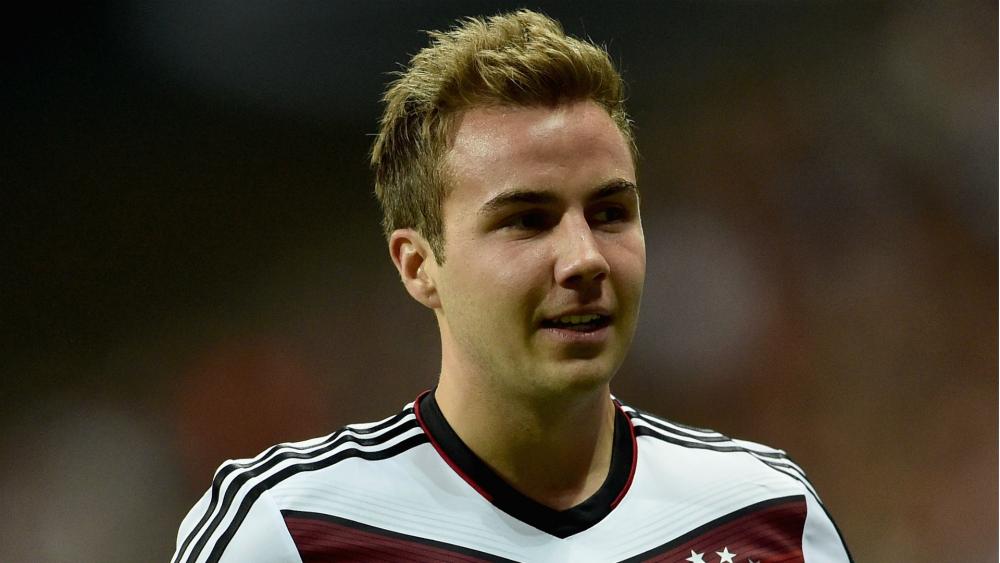FourFourTwo's 100 Greatest Footballers EVER: 30 to 21
The greatest player of the mid-2000s, the 20th century’s most intimidating keeper and England’s fairytale hero

30. Lothar Matthaus
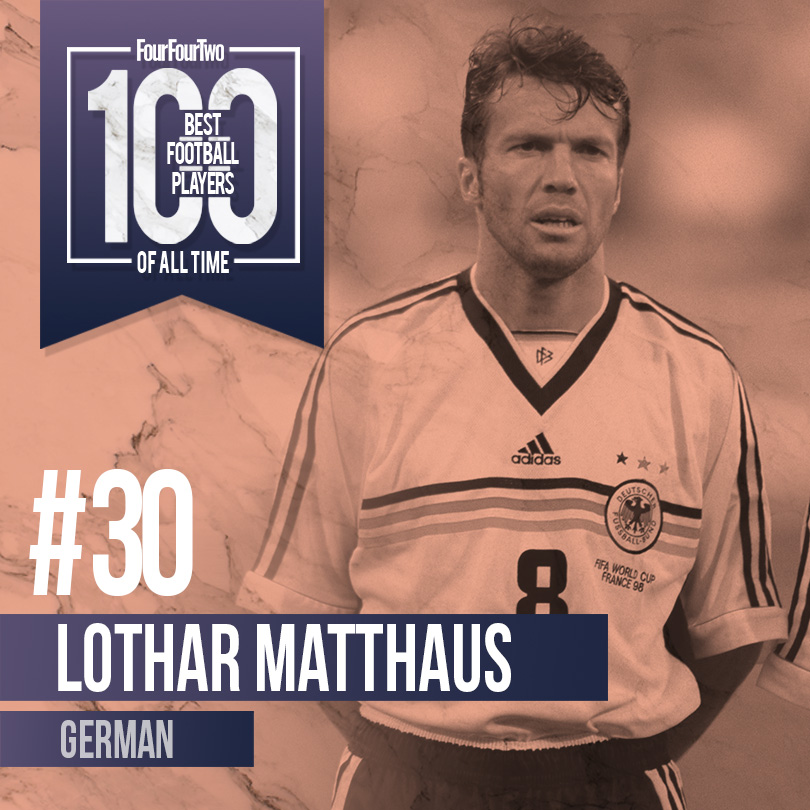
Why are they here?
An all-action midfielder who combined ferocity and finesse without compromising on either, Matthaus was a rampaging engine-room presence who was described by Diego Maradona as his toughest opponent.
His heyday was as the poster-boy of the Germanic domination of European football in the late 1980s and early '90s, during which time he helped himself to 13 major club trophies, World Cup and European Championship medals, plus – to cap it all off – the Ballon d’Or in 1990.
Career Highlight
Captaining an impossibly suave West Germany side to victory in the 1990 World Cup, getting the ball rolling himself with two sumptuous individual goals against Yugoslavia in the opening game.
Words: Alex Hess
29. Raymond Kopa
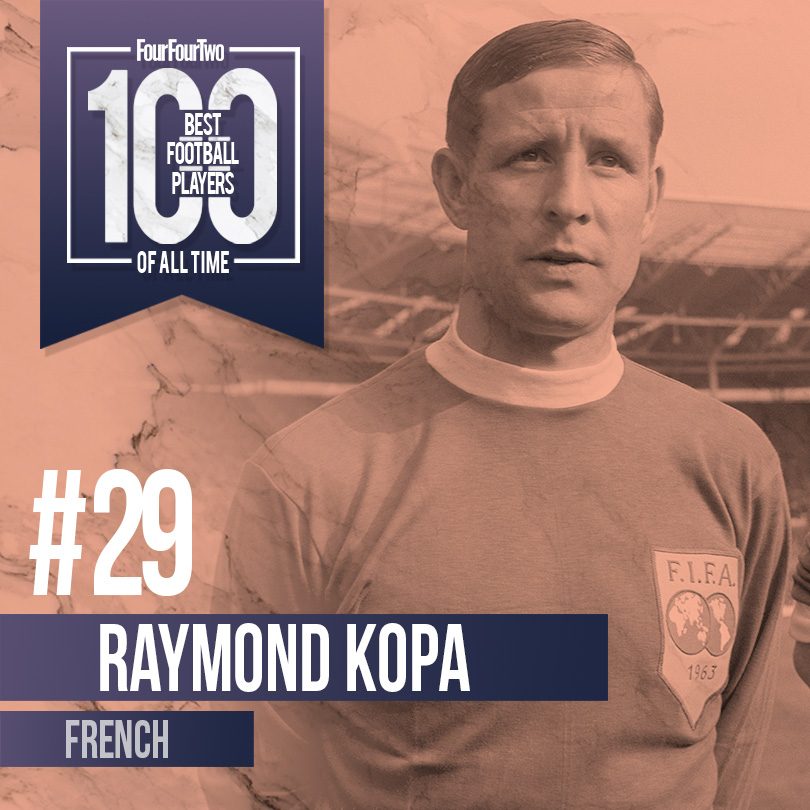
Why are they here?
An agile and lithe playmaker, the son of Polish immigrants soon became a French hero at Stade de Reims, dovetailing perfectly with Just Fontaine. An imperious display for France against Spain (Marca nicknamed him Little Napoleon) caught the eye of Real Madrid scouts, where, alongside Ferenc Puskas, he won three European Cups.
Get FourFourTwo Newsletter
The best features, fun and footballing quizzes, straight to your inbox every week.
A second spell back at Reims was also hugely successful, with Kopa adding two more league titles to his bulging trophy cabinet.
Career highlight
Kopa had the honour of becoming the first Frenchman to ever lift the European Cup when Real defeated Fiorentina in the 1957 final.
Words: Jon Spurling
28. Socrates
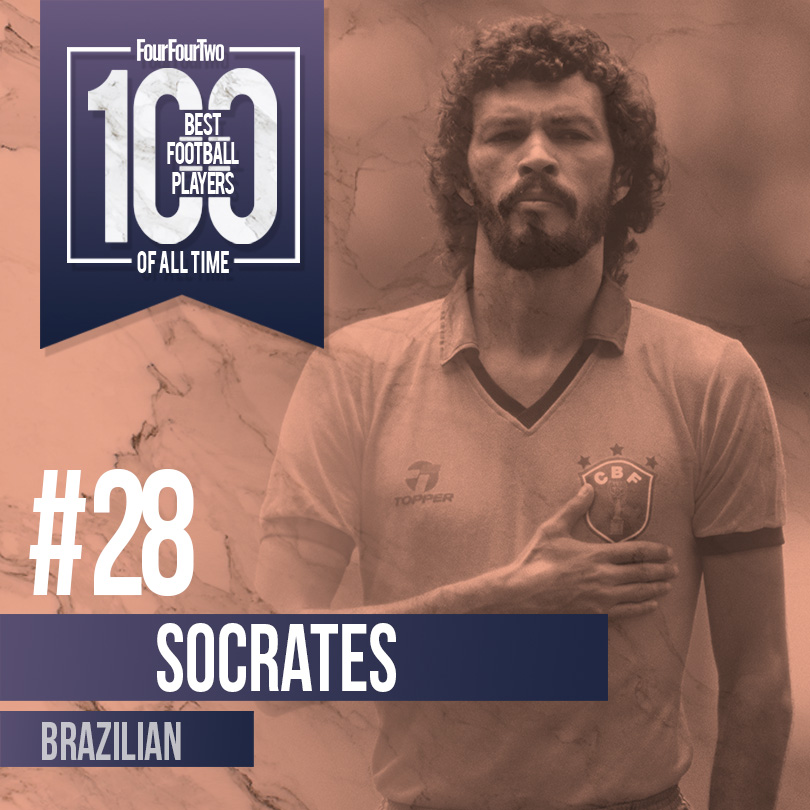
Why are they here?
Perhaps the ultimate bohemian icon in football history, a deep thinker in all areas of life and a formidable midfielder of one of the greatest sides Brazil has ever produced. Also a pediatrician, he was remarkably gifted and could read the game more quickly than anyone else.
He also made the no-look backheel pass his own signature – Pele once said that Socrates could play better going backwards than most players could going forwards. Off the field, he challenged the Brazilian military government and lead the democracy movement at Corinthians.
Career highlight
This intellectual footballer defined an entire generation in Brazil with his performances at 1982 and 1986 World Cups.
Words: Marcus Alves
27. Bobby Moore
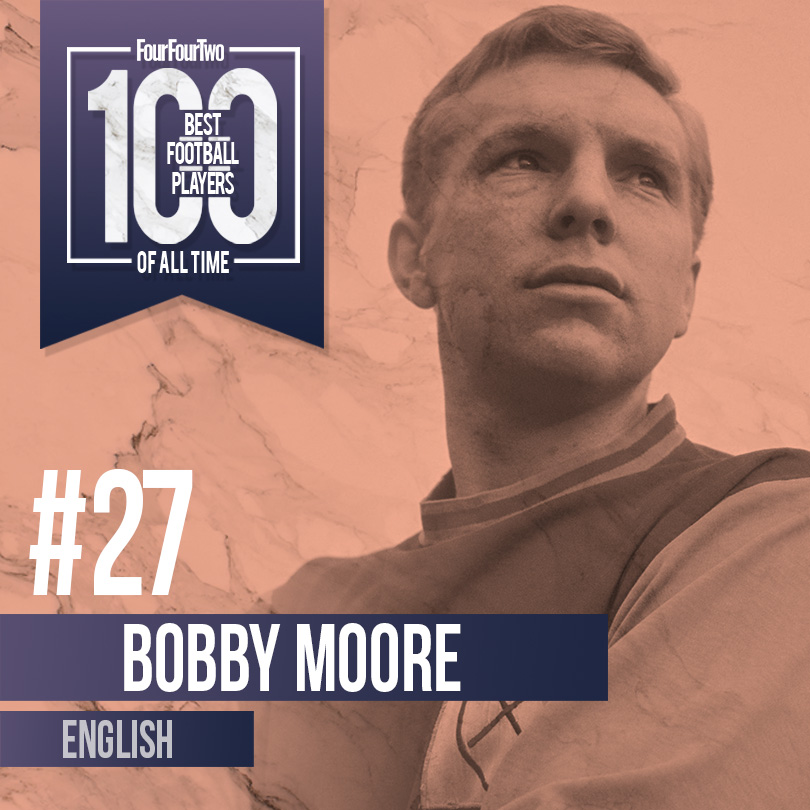
Why are they here?
The icon of English football, who continues to stand guard outside Wembley Stadium 24 years after his untimely passing. West Ham legend Moore was a fairytale hero of the sport, immortalised by lifting the World Cup in 1966, and who was also renowned as a gentleman of the game.
A footballing centre-half long before the concept was fashionable, to this day he remains the yardstick against which all England defenders are measured. Pele still refers to him as the best defender he faced (with the two bound together for eternity by that photograph taken at the 1970 World Cup) and has never failed to emphasise Moore’s human qualities as being the essence of his greatness.
Career highlight
Collecting the World Cup from Her Majesty the Queen in 1966 (having wiped his hands first on the velvet tablecloth, naturally).
Words: Seb Stafford-Bloor
26. Valentino Mazzola
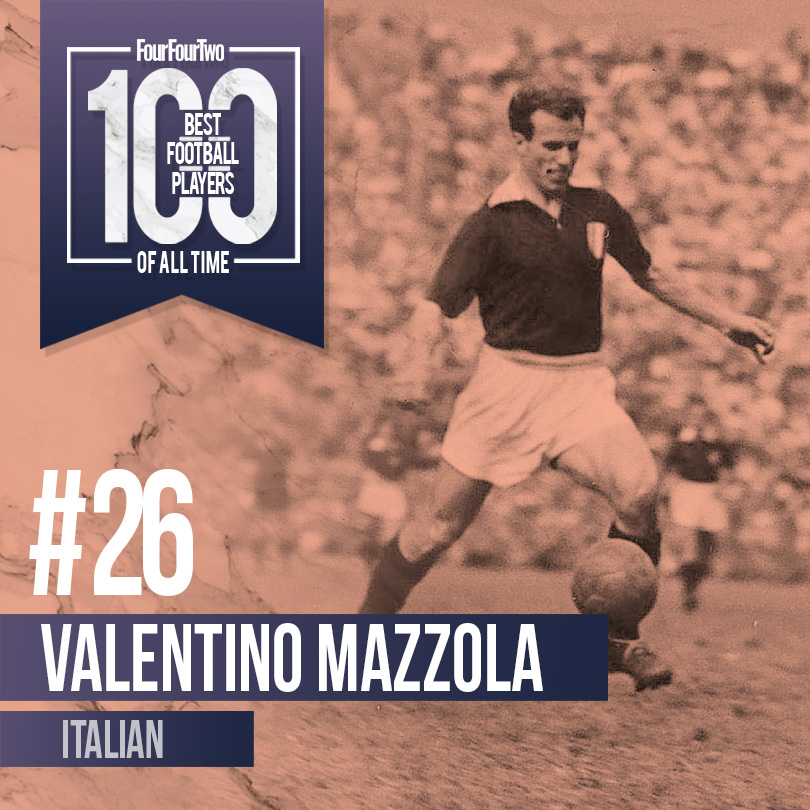
Why are they here?
"Captain Valentino... inspired, eccentric, spoilt, talkative, surly," was how Italian journalist Nino Nutrizio described the attacking midfielder who perished in the 1949 air crash that wiped out the legendary Grande Torino side.
During his five campaigns in Turin, he won five championships and netted 102 goals. Acutely aware of his own worth, Mazzola frequently asked for more money and fell out regularly with team-mates, but president Novo invariably backed captain Valentino, basically because he was priceless.
Career highlight
Using his prodigious heading ability to great effect, he scored an outstanding 29 goals from central midfield in 1946/47, eight more than the next-placed player.
Words: Jon Spurling
25. Carlos Alberto
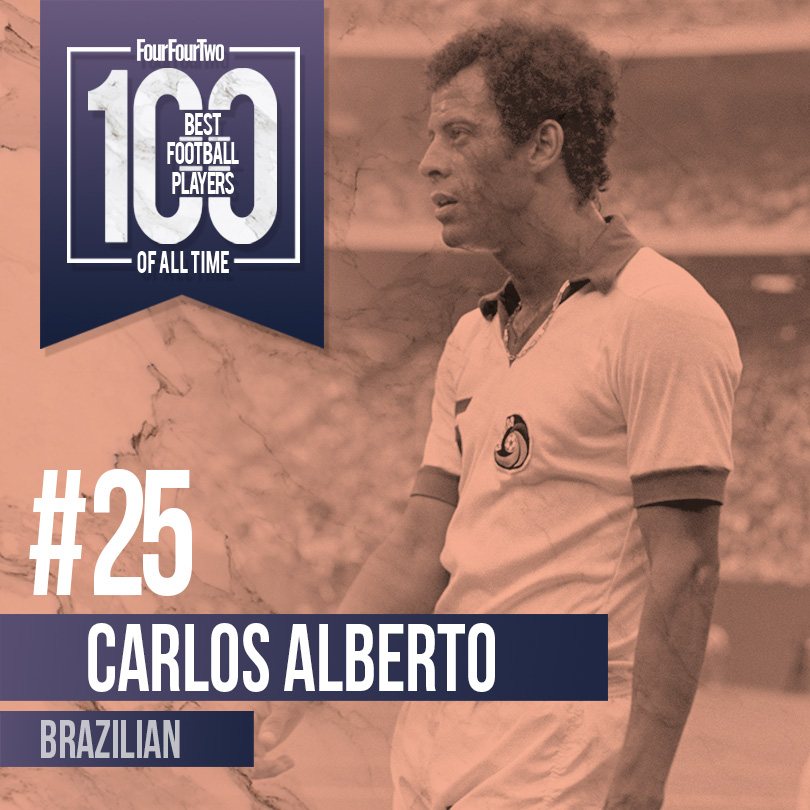
Why are they here?
The Capita (or Captain) led the way for a new generation of full-backs and always performed in a composed, elegant style. He could play both outside and inside defensive positions, and his leadership was pivotal in the Brazil team that won the World Cup in 1970.
Alberto also enjoyed success along with Pele at Santos, where he spent eight years and celebrated two Brazilian championships with five Sao Paulo State titles, among other honours.
Career highlight
His goal in the 1970 final against Italy with just a few minutes to go is rated by many as the greatest ever scored.
Words: Marcus Alves
24. Ronaldinho
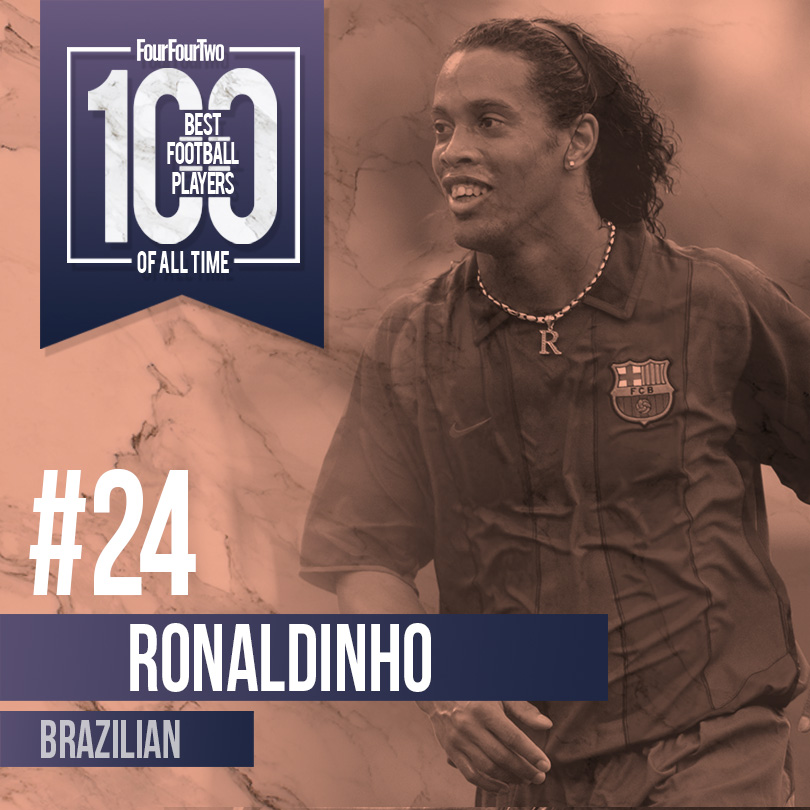
Why are they here?
His buck-tooth smile made him one of the most recognisable faces in football. Ronaldinho was a rare case of a man who could make the unpredictable seem commonplace on the field. He was twice voted FIFA World Player of the Year, and was indeed the best player on the planet in the mid-2000s.
If greatness was measured in joy, Ronaldinho would leave the others by some distance during his five seasons at Barcelona, which delivered two league titles and a Champions League crown. He would later emulate his best days at Atletico Mineiro in their victorious Copa Libertadores campaign.
Career highlight
Won the 2002 World Cup as part a formidable trio with Ronaldo and Rivaldo dubbed by Brazilian commentator Galvao Bueno as ‘the three Rs’.
- Year Zero: The making of Ronaldinho (PSG, 2001/02)
- Long read: Ronaldinho – How the godfather of flair changed football forever
- One-on-One: I was about to join Manchester United; how I lobbed David Seaman; I was good for Messi
Words: Marcus Alves
23. Eusebio
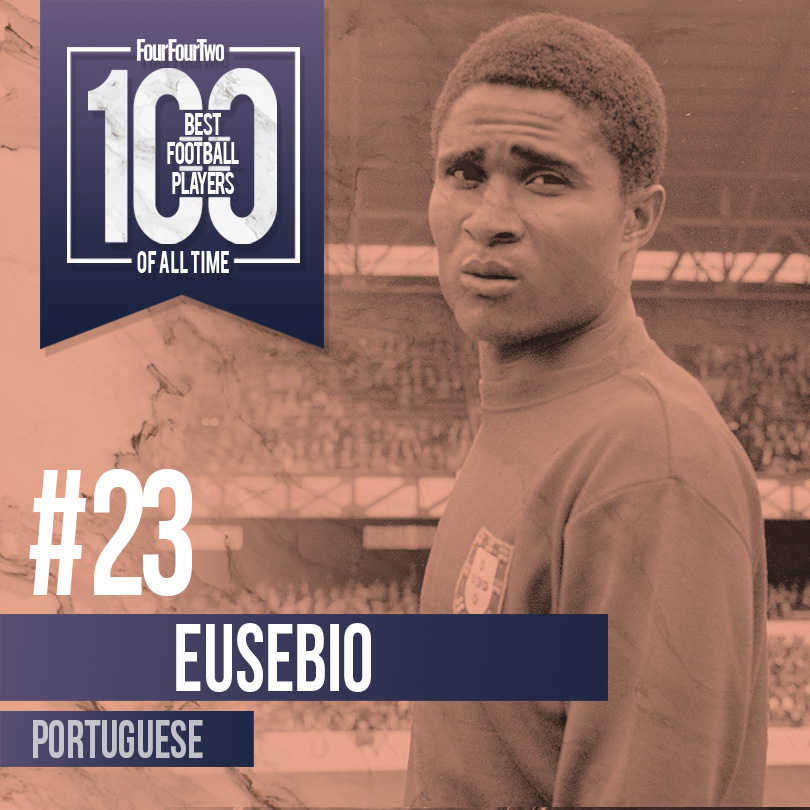
Why are they here?
A goalscorer before his time, but also an athlete ahead of the curve. Eusebio was known as a near-perfect blend of speed and ability. Unanimously regarded as the first great footballer of African birth, he left his native Mozambique in the late 1950s to join Benfica. Between 1960 and 1975 he won 11 Primeira Liga championships, a European Cup and averaged more than a goal per game over six different seasons.
Although Portugal were ultimately knocked out in the semi-finals of the 1966 World Cup, he also won the Golden Boot and, until Cristiano Ronaldo's ascension, was inarguably the greatest Portugal international of all time.
Career highlight
Winning the Ballon d’Or in 1965 ahead of Inter greats Giacinto Facchetti and Luis Suarez.
Words: Seb Stafford-Bloor
22. Lev Yashin
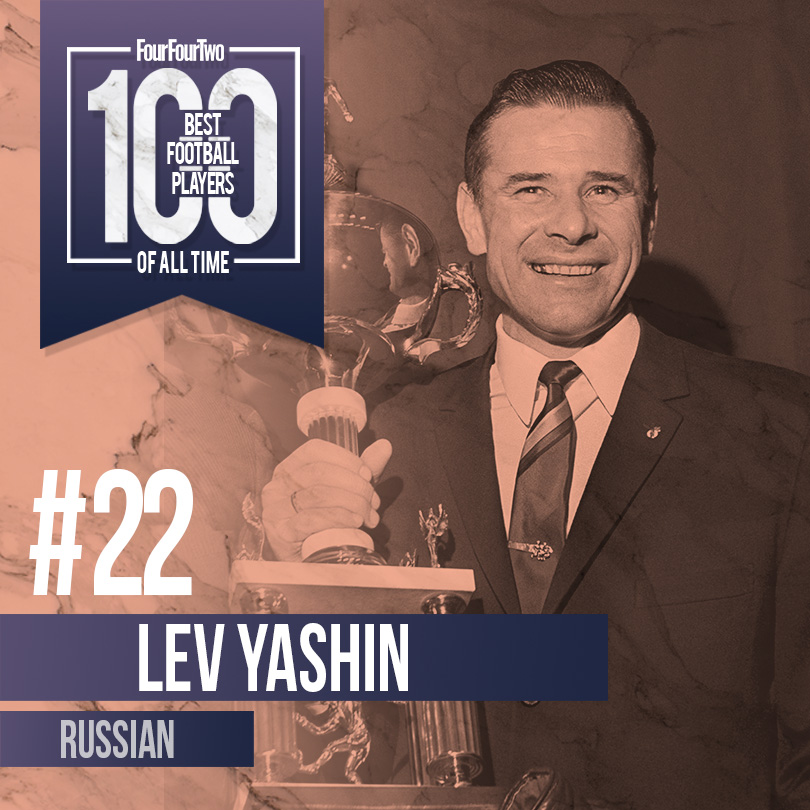
Why are they here?
Dressed hea to toe in black, Yashin was the most imposing and controlled of goalkeepers. As the Cold War rumbled on, there was absolutely no chance of the ‘Black Spider’ being lazily dismissed as a Soviet automoton by the Western media.
Ahead of his time, Yashin rushed off his line to intercept marauding forwards, headed the ball away and barked instructions at his defenders. Legend has it that he saved over 150 penalties in his club career, which he spent entirely with Dynamo Moscow.
Career highlight
Yashin played in three World Cups for the Soviet Union, but he had the honour of being part of the Soviet Union team that won the inaugural European Championship in 1960 in Paris.
Words: Jon Spurling
21. Romario
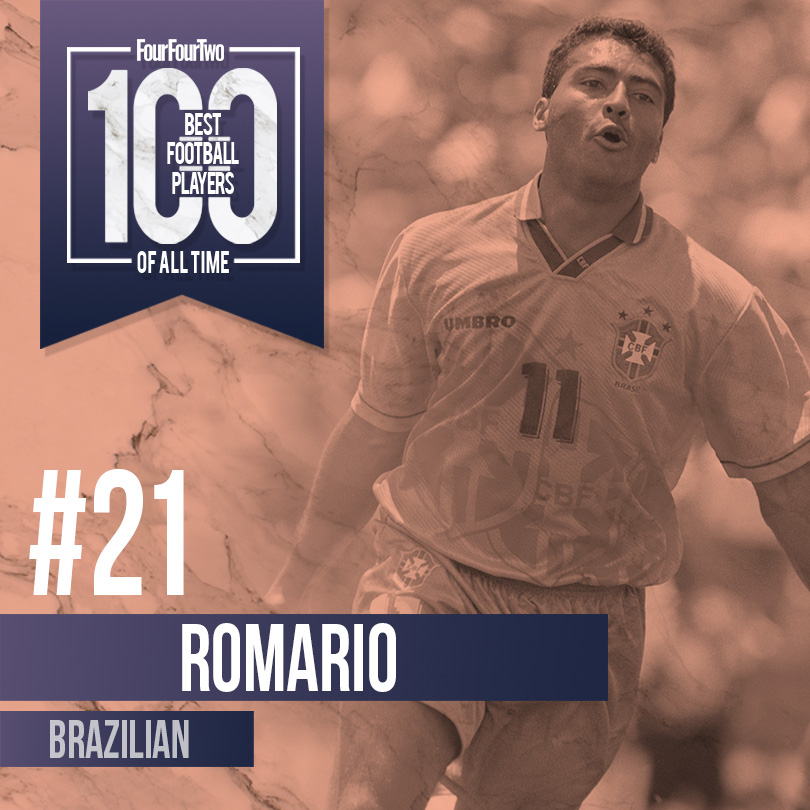
Why are they here?
The Brazilian was a short, lethal striker with dazzling close control and nerveless finishing abilities. When he was through on goal, the keeper was basically doomed.
Romario's club career took him from Vasco da Gama to PSV to Johan Cruyff’s mid-'90s Barcelona team. He was prolific wherever he went, but not always easy to manage due to his, ahem, forceful personality (and a firm belief that he played his best football while partying all night).
He was generally worth any hassle, though – and his record for Brazil is superb. His 55 goals in just 70 games puts him behind only Pele and Ronaldo in the list of the Selecao’s highest scorers.
Career highlight
Player of the tournament at the 1994 World Cup, Romario led a Brazil side in dire need of his cutting edge to glory with five goals in seven matches.
Words: Alex Reid
The list
100 to 91 • 90 to 81 • 80 to 71 • 70 to 61 • 60 to 51 • 50 to 41 • 40 to 31 • 30 to 21
20 • 19 • 18 • 17 • 16 • 15 • 14 • 13 • 12 • 11 • 10 • 9 • 8 • 7 • 6 • 5 • 4 • 3 • 2 • 1
Alex Reid is a freelance journalist and the former digital features editor at FourFourTwo. He has also written for the Guardian, talkSPORT, Boxing News and Sport magazine. Like most Londoners, he is a lifelong supporter of Aberdeen FC. He is deceptively bad in the air for a big man. He has never been a cage fighter.

